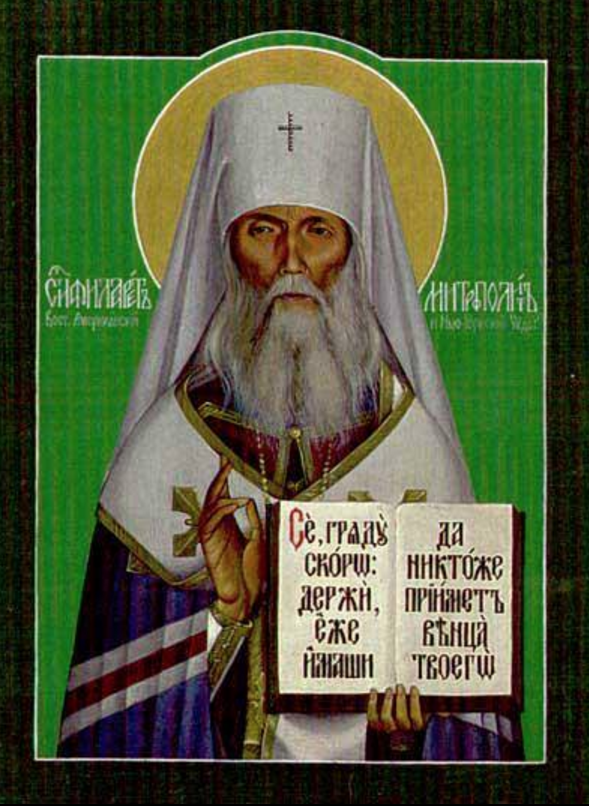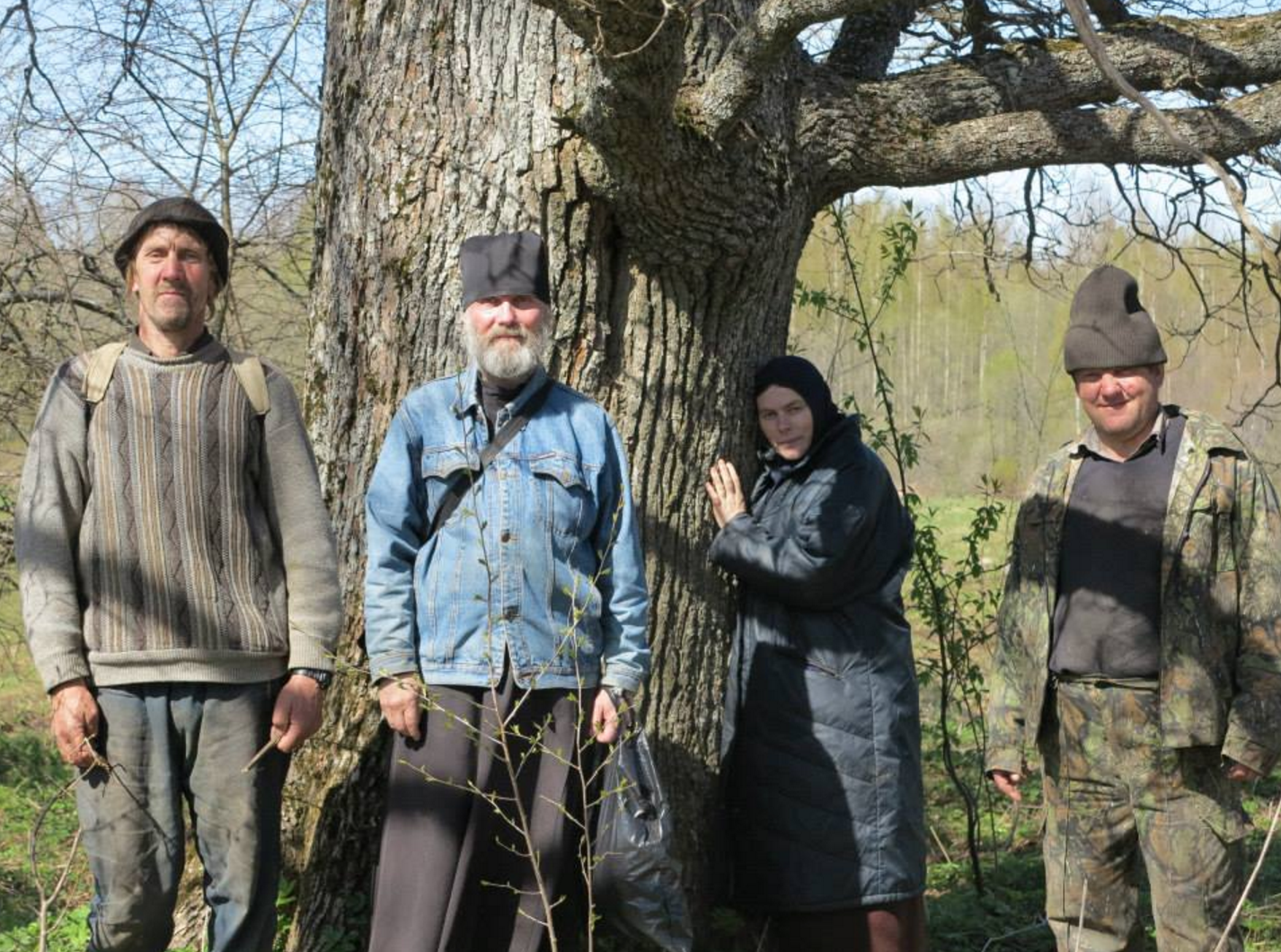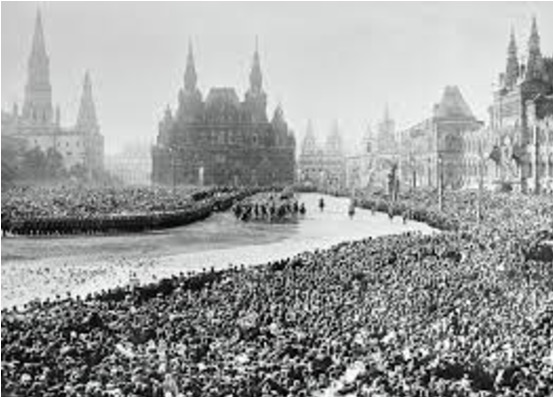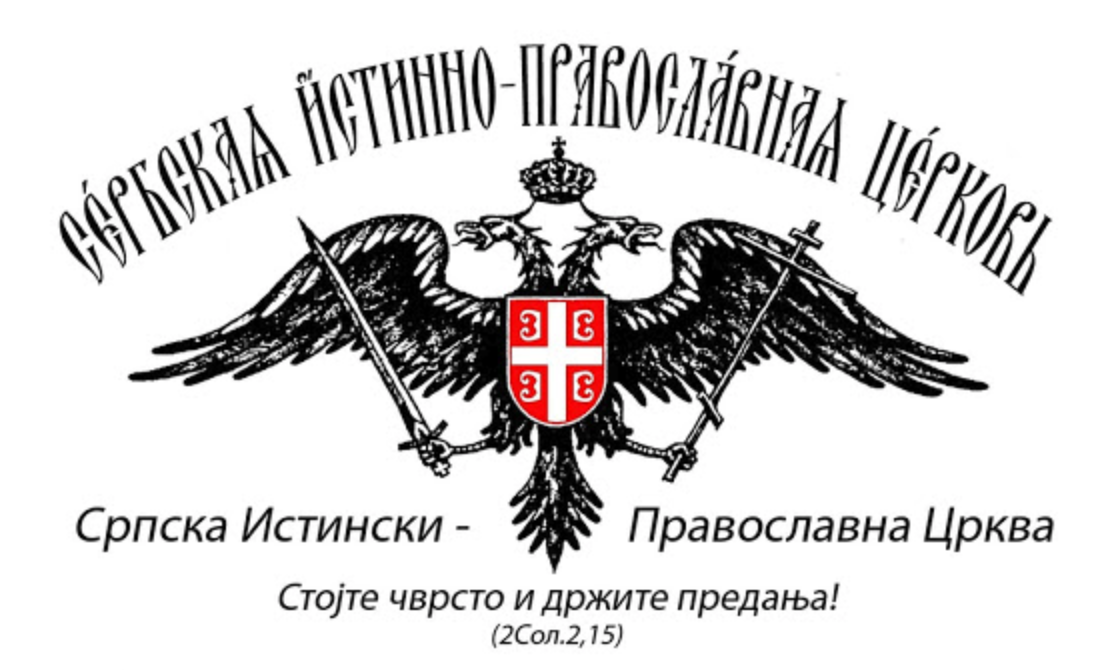| 09.05.2021 Пасхпльная подборка диакона Василия Якимова (ENG) |

|

|

|
|
“CHRIST IS RISEN FROM THE DEAD, TRAMPLING DOWN DEATH BY DEATH, AND UPON THOSE IN THE TOMBS BESTOWING LIFE!”- ALLELUIA
CHRIST IS RISEN! TRULY HE IS RISEN!...and Death Is No More!
Dear Rev Bishops, Rev Fathers, Brothers, Sisters & Friends, Christ is Risen! Indeed He is Risen!Wishing you joyous Holy Pascha |
|||||||||||||
The radiant Feast | |
| |
**************************************************************************************************************************** | |
THOMAS’ DISBELIEF
Christ is risen!
The joyous days of the bright paschal week have passed.
The Church has closed the royal doors of its altars and has directed our mind’s and heart’s gaze towards seeing how the world accepted the news of Christ’s Resurrection.
And the first image that the Church offers to us is the image of the doubting Thomas.
The great and incomprehensible truth of Christ’s Resurrection could not be grasped by the mind of man, and thus could truly become for him a stumbling block and a source of incredulity. But at this point the nature of disbelief is revealed to us.
 “Usually,” - says a Christian philosopher, - “truths of faith are rejected in advance not because of coarseness of mind, but because of corruption of the will. There is no heartfelt attraction towards such objects as God, salvation of the soul, resurrection of the body; there is no desire to have such truths truly exist or, at the least, to regard them seriously… Such disbelief, essentially uncertain of itself and, therefore, more or less set against the objects whose existence it denies, - gives itself away through this hostility, since one cannot really be set against that which does not exist at all, - such disbelief is unscrupulous…” But the disbelief, or rather the doubt, of Apostle Thomas was quite different. He wanted to believe, he tried to believe, he sought confirmation of his belief.
“Usually,” - says a Christian philosopher, - “truths of faith are rejected in advance not because of coarseness of mind, but because of corruption of the will. There is no heartfelt attraction towards such objects as God, salvation of the soul, resurrection of the body; there is no desire to have such truths truly exist or, at the least, to regard them seriously… Such disbelief, essentially uncertain of itself and, therefore, more or less set against the objects whose existence it denies, - gives itself away through this hostility, since one cannot really be set against that which does not exist at all, - such disbelief is unscrupulous…” But the disbelief, or rather the doubt, of Apostle Thomas was quite different. He wanted to believe, he tried to believe, he sought confirmation of his belief.
And Christ the Saviour, Who never appeared amid offensive and stubborn disbelief, condescended to Thomas’ frailty and personally confirmed His resurrection to him.
This image is quite instructional for all of us of course, but it is especially relevant to those who suffer disbelief, who are tortured by a weak and shaky faith.
Above all we must guard ourselves against allowing our sinful will to seek an outlet for itself in this spiritual frailty. After all, it is much easier to live without faith. Faith requires intense pressure, requires spiritual labor, while disbelief unties one’s hands for many things.
*************************************************************************************************************************
SUNDAY OF THOMAS | |
| |

Thomas's unbelief. (Archbishop Averky) (John 20:24-31)
Evangelist John notes that at the first appearance of the Lord, all His disciples gathered together, there was no Apostle Thomas called Twin, or Didim (in Greek). As seen from the Gospel, the character of this apostle was distinguished by the gospel, which is perseverance, which is characteristic of simple but firmly established view. As the Lord went to Judea to resurrect Lazarus, Thomas expressed confidence that this journey will not work out good: ′′ Let us go and we will die with Him ′′ (John 11:16). When the Lord said to the disciples in His farewell conversation: ′′ Where am I going walking, you know, and you know the way," then Thomas began to contradict: ′′ We do not know where you are going; and how we can know the way John. 14:5).
The godfather's death of the Teacher therefore made a particularly difficult, depressing impression on Thomas: he would somehow fall asleep in the belief that his loss is irrevocable. The decline of his spirit was so great that he wasn't even with other students on the day of resurrection: he apparently decided that there was no need to be together since it was over, it was all broken up and now each of the students should still conduct their separate , independent life. And so, after meeting other students, he suddenly hears from them: ′′ Have you seen the Lord." In full accordance with his character, he sharply and decisively refuses to believe their words. Considering the resurrection of His Master impossible, he declares that he would have believed it only if he had not only seen it with his own eyes, but also tangled the ulcers of the carnation on the hands and feet of the Lord and the spear of His rib. ′′ I will put my hand in his ribs ′′ - from these words Thomas shows that the wound upon the Lord was very deep.
Eight days after God's first appearance to the ten apostles, the Lord is again, ′′ when the doors were locked," apparently, in the same house.
Thomas was with them this time. Maybe under the influence of the treatment of other disciples, the persistent disbelief began to leave him, and his soul became little-little again capable of faith. The Lord showed up to ignite this faith in him. As for the first time, the Lord answered Thomas with his own words with which he gave his faith. on His resurrection. It is clear that this knowledge by the Lord of his doubts should have amazed Thomas. The Lord added: ′′ And do not be unbelievers, but believers," that is: you are in a decisive position: only two roads are before you now - full of faith and decisive hardening of the spiritual. The Gospel did not say whether Thomas really felt the ulcer of the Lord - you can think he had tangled - but somehow faith burned with a bright flame in him, and he cried: ′′ My Lord and my God!" With these words, Thomas confessed not only faith on the Resurrection of Christ, but also faith in His Deity.
However, this faith was based on sensual certificate, and therefore, God, in the edification of Thomas, other apostles and all people for all future times opens the highest path to faith, pleasing those who reach faith not the sensual way it achieves: ′′ Blessed are those who have not seen and believed..." And before, God repeatedly gave an advantage to the faith that is based not on miracle, but on the word. The spread of the faith of Christ on earth would not have been possible if everyone demanded the same ID for their faith as Thomas or never ceasing miracles. Therefore, the Lord pleases those who reach faith with only trust in the testimony of the word, with trust in the teachings of Christ. This is the best way to believe.
With this narrative of St. John finishes his gospel. The next chapter 21 was written by him later, after some time, they think, about hearing that he is determined to live until the second coming of Christ. Now the St. John concludes his narrative with evidence that ′′ Jesus did much before his disciples and other miracles, which are not written in this book ′′ - though St. John and set himself a goal to complement the narrative of the first three Evangelicals, but he also recorded not everything. He believes, however, that what is written is sufficient, ′′ that you may believe that Jesus is Christ, the Son of God, and believing, have life in His name ′′ - and that little that is recorded is enough to assert faith into the Deity of Christ and for salvation through this faith.
*************************************************************************************************************************
Holy Great-Martyr George and Trophy Bearer
May 6 [April 23 Julian Calendar]
This great miracle worker and martyr lived in the latter part of the third century A.D., during Diocletian's rule of the Roman Empire. He originally came from the area of Cappadocia and was raised by very pious parents.
When Diocletian started his persecutions against the Christians, Saint George declared himself to be a Christian and thus denied the false idols. He suffered many tortures because of his belief, but never considered renouncing it.
The life of Saint George is a prime example of the life that each Christian should follow to obtain salvation.
Saint George, the Great Martyr, was raised in the Christian religion. His father, himself, martyred for his faith. After his father's death, George's mother took him to Palestine where she had some farm land. At a young age, he served in the Roman army under the Emperor Diocletian and was commended many times for his excellent service to the Empire. From the rule of the Emperor Decian, until 284 A.D., when Diocletian became Emperor, the Christian Church went through a period of peace and prosperity. During that time, the Christians obtained important positions in the government, built many churches and schools, and organized the authoritative structure of the Church. Diocletian gave many of his loyal officers political positions so that he could have the military strength of his Empire on his side.
After Diocletian had suppressed the barbarian tribes which were attacking the Empire and after he had secured its borders, he began to concentrate on the Empire's internal affairs. Diocletian believed that a state religion could keep an Empire united. Since paganism was the state religion, Diocletian focused his efforts toward the suppression of Christianity.
During the year 303 A.D., Diocletian summoned his aides to meet in Caesarea, a city of the Eastern Roman Empire. He held three general meetings with his aides, instructing them to persecute the Christians. Saint George, since he had shown his excellence while serving in the army, was among these aides. Diocletian asked them to pledge their allegiance to this cause by making pagan sacrifices as proof of their loyalty. All of the aides pledged their loyalty, except for the Saint. He stood in front of Diocletian and admitted his belief in Christianity, telling the monarch of the Christian teachings and the Godliness of the Crucified Nazarene. The Emperor ordered this Christian taken to prison and that a boulder be placed on his chest as a form of torture. The next morning Diocletian ordered that the prisoner be brought before him for questioning. George stood steadfast and told Diocletian of his belief in the riches of the Kingdom of Heaven.
The Emperor then summoned the executioners to take the Saint and have him bound to the rim of a wheel set with sharp spikes. Diocletian admired the courage of the Saint and asked him to sacrifice to the gods to save himself. He refused Diocletian's request and welcomed the chance to martyr for Christ, as his father had done. After praying to God, he heard a voice from heaven say, "Do not fear, George, I am with you." With the help of Christ, the spiked wheel had no effect upon Saint George. When the Saint appeared before Diocletian not only was he unharmed, but an angelic aura had settled about him. Suddenly, two officers of the Roman army, Anatolios and Protoleon, appeared before Diocletian with two thousand soldiers. They admitted their belief in Christ and Diocletian had them all executed.
He then ordered his soldiers to dig a pit and fill it with lime. The Saint was then drenched with water and thrown into the pit. The water and lime would slowly destroy the Saint's body. After three days, Diocletian instructed the soldiers to clear the pit. To the surprise of the soldiers and the Emperor, Saint George sat at the bottom of the pit unharmed. Diocletian demanded to know what type of magic George had used to escape his fate. George answered that he had not used any magic, but that he had been saved by the power of God.
The Emperor then ordered that iron sandals be tied to the feet of the Saint and that he be made to run. As he ran, he was beaten. One of Diocletian's advisors, Magnentios, ordered George to perform a miracle. They happened to pass by a tomb of a man who had been dead for many years. Magnentios ordered George to resurrect this man to show the power of his God. After praying for a long time, he rolled the rock away from the tomb and resurrected the dead man. The by-standers praised the strength of Christ. Diocletian asked the resurrected man who he was and when he had died. He told Diocletian that he had lived before Christ had come on the Earth, and because he was an idolater, he had burned in the fires of Hell during all those years. Many idolaters were converted to Christianity because of this great miracle.
Among the people who glorified God and Saint George at the tomb was a farmer named Glecerios. Previously Saint George had resurrected this farmer's oxen, his livelihood. Because the farmer was so outspoken, the soldiers murdered him and thus he received the crown of martyrdom.
The next day, Diocletian met with his noblemen to determine Saint George's fate. They decided to beat the Saint mercilessly. The Saint nevertheless remained unharmed and retained his angelic appearance. Diocletian was convinced that all of George's miracles were done by magic. He, therefore, called upon Athanasius the Magician to break this magic. Athanasius held two vials in his hands. If the Saint drank the first one, he would go insane, if he drank the second one he would die.
He drank its contents and there was no effect. Diocletian still believed that George was a magician; however, Athanasius realized the strength of God and confessed his belief in the Christian God. Athanasius was immediately executed by Diocletian's order. After seeing the miracles of Saint George, Diocletian's wife, the Empress Alexandra, also confessed her belief in Christ. Diocletian imprisoned her. Saint George was returned to prison and dreamt that Christ told him that he would receive the crown of martyrdom and life eternal.
In the history of our Church, we find a myth related to a dragon and Saint George. This dragon threatened the idolaters in the area of Atalia. The people were forced to live inside the walls of their city. This prevented them from tending their fields and grazing their sheep. Every year, they would sacrifice a young girl to the dragon. When Saint George arrived in this area, the King's daughter was about to be sacrificed. After subduing the dragon, Saint George placed a rope around its neck. He then gave the rope to the princess so that she could lead the beast back to the city. Thence, he slaughtered the terror and subsequently baptized thousands of the city's inhabitants.
It is from the icon of Saint George that this myth came about. The icon depicts the Saint as an equestrian slaying the dragon with the princess in the background. The first iconographers of Saint George were probably trying to depict Satan as the dragon and Saint George conquering evil. Another explanation of this icon is that the artists were trying to depict Diocletian as the dragon and Saint George conquering him. The princess in the background could have been the Empress Alexandra who watched Saint George as he triumphed. She could also symbolize Christianity, or the Church itself. When the Crusaders journeyed through the Byzantine Empire, they saw this icon and from its depiction they interpreted the legend which they spread throughout western Europe.
Some Miracles of Saint George
1. A woman had bought a pillar for a church being dedicated to Saint George in Rome. However, she had no means of transporting the pillar. One night she dreamt of Saint George. He helped her to lift the pillar and then throw it into the sea. Soon afterwards, the pillar was found in Rome with instructions to place it on the right side of the church as the woman had wished.
2. In the city of Paflagonia in Pontus, many churches had been dedicated to Saint George. Many families named their children George or Georgia in honor of this great martyr. The following miracle concerns one particularly pious couple who had named their son George. The boy had been raised with great faith. As was the law, when he became twenty years old, he served in the army. During a battle with a barbaric tribe, many Christian soldiers were either murdered, imprisoned, or enslaved. George became a personal slave to one of the barbarian officers. His parents, giving him up for dead, had mourned him for a year. They went to one of the churches dedicated to Saint George and asked that he tell them what had happened to their son. The Feast Day of Saint George was being celebrated on the anniversary of the boy's disappearance. The parents invited their relatives to dinner since they hoped that Saint George would give them a sign concerning their son. That same evening, the barbarian master was preparing for a dinner and ordered George to draw some water with which to wash his master's feet. As he drew the water he cried and prayed to Saint George to reunite him with his family. As he prepared to return to his master, a horseman appeared before him on a white horse. It was Saint George. The Saint put him on the horse and the boy found himself in the house of his parents while they were eating. One may imagine the happiness that filled that house. It is from this miracle that another icon of Saint George is based. It depicts a boy on the back of the horse with Saint George. This icon was first made in early Byzantium.
The fame of Saint George spread all over the East, and the Crusaders brought their devotion for the warrior Saint back to Europe. Through the Crusaders, Saint George became the patron Saint of England. He is also the patron Saint of Syria and Lebanon. The Emperor Constantine dedicated a church to him not long after his martyrdom, and in later times, he became an object of devotion for Christians and Muslims alike.
Saint George is the protector of Christians, and the patron of all who fight for righteousness. His cheerful fortitude and unswerving loyalty have inspired generations of Christians the world over.
***************************************************************************************************
***************************************************************************************************
HOMILY FOR ALL SAINTS’ DAY
Today, dear brethren, we commemorate all the saints, and it would, therefore, be fitting for us today to compare our lives with the lives of saints. We often hear a familiar protest from other people: “But I am not a saint!” Well, let us try to see then who and what they are – these saints…
In today’s reading from the Epistle we heard the following words: “The saints through faith subdued kingdoms, wrought righteousness, obtained promises, stopped the mouths of lions, quenched the violence of fire, escaped the edge of the sword, out of weaknesses were made strong, were valiant in fight, turned back the armies of the enemy…”
Let us look at some of the saints and at how they differed from us. Some, like St. Nicholas the Wonderworker or St. Sergius of Radonezh, for example, were chosen from their mothers’ wombs, while many others were martyrs for Christ. Among them there were men, women and children, the rich and the poor, the learned and common folk.
Look at them – they are here with us, on the walls of our church. They are showing us the way into the Heavenly Kingdom. In what way did they differ from us? All of them kept the two major commandments of the Lord: they loved God with all their heart and they loved their neighbors, including their enemies. They completely denied themselves and suppressed their pride. They visited the sick and those in prison, they helped people in need, they performed charitable deeds. They earnestly kept the fast and took communion. They did not feel coerced in going to church and they participated in the services.
Not all the saints were chosen from birth. The majority of them earned their place in the ranks of saints by the way they lived. St. Mary of Egypt, for example, earned her sainthood through penitence. Saint Blessed Xenia was originally a socially-prominent married woman. Not a whit of that which distinguished the saints is forbidden to us, dear brethren. The Gospel is preached to everyone equally. The Law of God applies to us in the same manner as it did to the saints.
In our everyday lives we often find idols for ourselves. Who are these idols? Usually they are singers, sport figures, actors or actresses. But never a saint! When we choose to idolize a singer, we become so enthralled with him that we memorize all his songs. If we choose an actor, we come to know all his films, and we begin to imitate him.
Bu why should we not choose to venerate a saint? Why not venerate the saint whose name we bear, for example, and why not start to imitate him or her? After all, their lives led them to salvation and they earned the Kingdom of Heaven! In their earthly lives there was nothing hidden, nothing shameful, as is the case with most modern idols, but on the contrary, there was much from which we can learn.

Excerpt from letters to spiritual children (1960)
Evil has not been created by God. Evil has no essence. It is a perversion of the natural world order (and in relation to men and angels – the moral order) by the free will of men and angels. If there were no freedom, there would be no possibility to pervert the moral order, which is all-wise and perfect. Angels and men would have been subordinate to the laws of the physical and moral world like robots, and there would have been no evil. But without free will there would not have been in men and angels the image and the likeness of God. A perfect creature is unthinkable without free will. By the way, all atheistic teachings are forced to reject free will; they do reject it in theory, but in practice they allow its existence, because otherwise they would have had to admit in horror that man is an insignificant part of a huge soulless machine, which does not know and does not want to know anything about man, but pitilessly cripples and destroys him when the laws of this machine demand it.
A desire to be “like gods, knowing good and evil,” led to the fall of angels and men. From this point begins the history of mankind. To nurture a man in piety and love for God, in love for other men, without suppressing his free will, to elevate him to the dignity of a son of God – that is a most complex task, absolutely insoluble for men, and one which demanded even from God a supreme sacrifice – the incarnation, death on the cross and the resurrection of God Himself.
Man cannot be saved with pride. In the presence of pride he can again fall away from God, even in paradise, but fall this time with the finality of the demons. For this reason the Lord allows man to learn in the course of his entire life that without God he is nothing, that he is a slave of his passions and a slave of the devil. For this reason the Lord does not allow the chaff to be winnowed before death comes, in order not to damage the wheat. A man without flaws, with only positive character traits, would definitely become vain. If we are able to feel great pride from being in possession of even small virtues, what would happen if the glory of the soul’s divinity were revealed to us while still here on earth? Even Apostle Paul needed the negative help of an angel of Satan, buffeting him, in order not to esteem himself too highly. What, then, can be said of ourselves!.
Just as the Lord is trying to save man, so the devil is trying to destroy him. The devil allows man to think he has gained victory over him, and thus leads him into the sins of self-satisfaction and pride; allows him to succeed in conquering the forces of nature and thus instills in him the thought: “Through science you shall conquer nature, you shall be immortal and will become godlike. Even now you can feel pride in your achievements…” The antithesis between these two trends is obvious. We can clearly see God’s concern for the salvation of man, and the devil’s attempts to destroy even those who use all their efforts to search for “the one thing needful,” i.e. the Kingdom of God. From the realm of theory this passes on to life itself, and man finds himself in a constant struggle with evil, with the devil, with his insinuations, first falling, then rising. In this struggle man comes to realize his frailty, the adversary’s cunning, God’s help and God’s love for man. He learns the price of good and evil, and in all consciousness chooses good, becomes steadfast in his preference for good and its source – the Lord God, and rejects evil and the devil.
LIVES OF THE SAINTS
On May 13th (April 30th, old style) the Church commemorates the great spiritual writer and hierarch, Saint Ignaty (Bryanchaninov).
Saint Ignaty (born Dmitriy Aleksandrovich Bryanchaninov) was born on February 5, 1807 in the Pokrovsky village of the Vologodskaya province. His mother gave birth to him after a long period of barrenness, followed by many fervent prayers and pilgrimages to holy places. The boy spent his childhood in the solitude of village life, and from his earliest years he was drawn to monasticism. As he grew older, his religious feelings became more and more prominent: they were manifested in his constant desire to pray and read spiritual books.
His father hoped to see Dmitriy in a government job, and to this end he took him to St. Petersburg and enrolled him in the Chief Engineering Institute. Dmitriy was a brilliant student, and until his very graduation remained at the top of his class. His abilities were varied - not only in the sciences, but also in painting and music. However, even living among the hustle and bustle of life in the capital, Dmitriy did not renounce his inner aspirations.
Just as earnestly as he studied the sciences, so did Dmitriy begin to acquaint himself with ancient and modern philosophy, trying to still his inner spiritual torment, but again in this case he was unable to find an answer to his wonderings about Truth and the meaning of life. Then Dmitriy turned to studying the Orthodox faith through the writings of the Holy Fathers, whose holiness, together with the wondrous concord between them, became a guarantee for him of their probity. Soon Dmitriy began attending services at the Alexander Nevsky Lavra, where he found counselors who genuinely understood his spiritual needs. The final change in his life occurred after his meeting with elder Leonid (who later became the great Optina elder Leo). Then Dmitriy Bryanchaninov left the glitter and wealth of aristocratic life and, causing deep perplexity among high society, retired from the world. After spending some time as a novice in several monasteries, he soon became a monastic under the name of Ignaty, and afterwards was appointed to various neglected monasteries and hermitages, which he invariably restored to their former thriving condition. At the same time he occupied himself with the writing of spiritual books, among which the best-known were his “Ascetic experiences.”
In 1857 St. Ignaty was ordained Bishop of Caucasus and the Black Sea, but due a severe illness (smallpox), he was able to remain in his diocese for only four years. In 1861 St. Ignaty retired and devoted the remaining time until his death to his spiritual writings. St. Ignaty peacefully departed from this world in 1867.

The Nature of Man
This brings me to the very important point of your interpretation of the teaching of the God-bearing Father of almost our own times, St. Seraphim of Sarov, contained in his famous “Conversation with Motovilov.”
St. Seraphim says: “Many explain that when it says in the Bible that God breathed the breath of life into the face of Adam the first-created man, who was created by Him from the dust of the ground, it must mean that until then there was neither human soul nor spirit in Adam, but only the flesh created from the dust of the ground. This interpretation is wrong, for the Lord created Adam from the dust of the ground with the constitution which the holy Apostle Paul describes: ‘May your spirit and soul and body be preserved blameless at the coming of our Lord Jesus Christ.’
And all these parts of our nature were created from the dust of the ground, and Adam was not created dead, but an active being like all the other animate creatures of God living on earth. The point is that if the Lord God had not breathed afterwards into his face the breath of life (that is, the grace of our Lord God the Holy Spirit…), Adam would have remained without having within him the Holy Spirit Who raises him to God-like dignity. However perfect he had been created and superior to all the other creatures of God as the crown of creation on earth, he would have been just like all the other creatures, which, though they have a body, soul and spirit, each according to its kind, yet have not the Holy Spirit within them. But when the Lord God breathed into Adam’s face the breath of life, then, according to Moses’ word, ‘Adam became a living soul,’ that is, completely and in every way like God, and, like Him, forever immortal.”
This is the one patristic quote you give which seems to support your view that man was first a beast, and then (later in time) received the image of God and became man. In fact, I must tell you that you have completely misunderstood the teaching of St. Seraphim, who is not at all teaching what the doctrine of evolution teaches. This I can show by quoting both the clear teaching of other holy Fathers and that of St. Seraphim himself.
First, we should be clear that when St. Seraphim speaks of man as being composed of “spirit and soul and body,” he is not contradicting those many other holy Fathers who speak of human nature as merely “soul and body”; he is merely making a distinction between different aspects of the soul and speaking of them separately, as many holy Fathers also speak. Secondly, in saying that the “breath of life” which God breathed into the face of Adam is the grace of the Holy Spirit, he is not contradicting the very many holy Fathers who teach that the “breath of life” is the soul, but is only giving a perhaps more profound and precise interpretation of this passage from Scripture. But is he actually making the rationalistic distinction which you make between the nature of man which existed “before” this breathing, and the grace which was communicated by it? Does Orthodox theology accept the rigid dichotomy which Roman Catholic teaching makes between “nature” and “grace,” as though man knew everything there is to know about these two great mysteries?
No, Orthodox theology does not know such a rigid dichotomy on the subject: does immortality belong to the human soul by nature or by grace? What belongs to first-created Adam by nature and what by grace? Let us not make false rationalistic distinctions, but let us admit that we do not fully understand this mystery. Nature and grace both come from God. The nature of first-created Adam was so exalted that we can only faintly understand it now by our own experience of grace, which has been given to us by the Second Adam, our Lord Jesus Christ; but Adam’s state was also higher than anything we can imagine even from our own experience of grace, for even his high nature was made yet more perfect by grace; and he was, as St. Seraphim says, “completely and in every way like God, and, like Him, forever immortal.”
What is absolutely clear, and what is sufficient for us to know, is that the creation of man – of his spirit and soul and body, and of the Divine grace which perfected his nature – is a single act of creation, and it cannot be artificially divided up, as though one part of it came “first,” and another part “later.” God created man in grace, but neither the Holy Scriptures, nor the Holy Fathers teach us that this grace came later in time than the creation of man’s nature. This teaching belongs to Medieval Latin scholasticism.
To be convinced of this we have only to examine how the holy Fathers instruct us to interpret the sacred narrative of Genesis at this point. The answer is summed up for us by St. John Damascene: “With His own hands God created man both from visible and invisible nature, in His own image and likeness: from the earth God formed his body, and by His own inbreathing gave him a rational and understanding soul, which last we say is the divine image… Furthermore, the body and the soul were formed at the same time – not one before and the other afterwards, as the ravings of Origen would have it” (On the Orthodox Faith, II, 12.)
Although St. John Damascene speaks of God’s inbreathing as the soul, he does not teach differently from St. Seraphim, who spoke of this inbreathing as the grace of the Holy Spirit. St. John Damascene hardly speaks of grace at all in the creation of man, since this grace is understood to have been present throughout the entire process of creation, primarily in the creation of the image of God – the soul – which, as he teaches, is part of our nature. St. Gregory of Nyssa also speaks of the creation of man without paying any special attention to what comes “from nature” and what comes “from grace,” but simply ends his writing with the words: “Let us all return to that divinely apparent grace with which God created man in the beginning, saying: let Us make man in Our image, after Our likeness” (On the formation of man, XXX, 34).
St. John Damascene and others, speaking of God’s inbreathing as the soul, examine this subject in a somewhat different manner than St. Seraphim; but it is clear that the teaching of all these Fathers concerning the creation of man and, in particular, concerning the question of whether it is possible from the narrative in Genesis to conclude as to a difference in time between the “formation” and the “inbreathing” of man, – is one and the same. St. John Damascene speaks for all the Fathers when he remarks that they (i.e. the formation and the inbreathing) occurred “at the same time – not one before and the other afterwards.” Father Seraphim Rose
************************************************************************************************************************
THE MEANING OF GRACE IN THE LIFE OF A CHRISTIAN
In every person there is a seed of good. However, just as a regular seed cannot grow and ripen without moisture and light, so does the soul of man remain barren until it is irrigated by the grace of God. Feeling the inadequacy of divine help within himself, King David prayed to God: “My soul thirsteth after Thee, as a thirsty land.” And all people who have a genuine thirst for righteousness realize that without the help of God, without His guidance and support, spiritual life is totally impossible. The grace of God renews a man’s soul, purifies his conscience, enlightens his mind, fortifies his faith, guides his will towards good, warms his heart with love for God and one’s neighbor, directs him towards heaven, inspires him with the desire to live by spiritual interests. It purifies and sanctifies man’s entire being. According to the testimony of the many who were favored with supreme spiritual illumination, the grace of God brings such peace and joy to a man’s soul that all earthly riches and all physical delights seem pitiful and insignificant in comparison.
From the day the Holy Spirit descended upon the apostles, each newly-baptized person receives this grace of the Holy Spirit, just as did the apostles, in the sacrament of chrismation. The power of this sacrament is so great and indelible that, like baptism, it is never repeated. Subsequent sacraments of the Church, such as confession and communion, and also church services, home prayers, fasting, charitable deeds and a virtuous life serve to fortify and increase in a Christian the action of these gifts of grace that he had received in chrismation.
The life-giving power of the grace of God reveals itself in beneficial internal and external changes in the people who have received it. These changes were especially evident in Christ’s disciples. Until the descent of the Holy Spirit they, as we know, were simple and illiterate people, and possessed no eloquence of language. When the Holy Spirit descended upon them, however, they became enriched with spiritual wisdom, and with their inspired words began to attract not only simple folk to the faith, but even philosophers and noblemen. Their grace-filled words penetrated the coarsest hearts, disposing sinners to repentance and correction, and the fainthearted to diligence. From timid and timorous people, such as the apostles were during the Savior’s life on earth, after the descent of the Holy Spirit they became courageous and dauntless. The result of the gifts of grace which they had received was the appearance of a multitude of Christian communities even while the apostles were still living, not only in various parts of the Roman Empire, but also beyond its boundaries: in northern Africa, India, Persia and the south of Scythia. Thus, due to the apostles’ indefatigable efforts, Christianity began to spread throughout the entire world, and together with it there began a renaissance of human society.
One can become convinced of the life-giving power of the grace of the Holy Spirit by reading the book of “The Acts of the Apostles,” which describes the life of Christians during the first decade after the Pentecost. In fact, many sinful people, of little faith and exclusively worldly interests, upon receiving the Holy Spirit became deeply religious, righteous, full of zeal and fervent love for God and other people. “They (the newly-baptized), - as it is written in the book of Acts, — continued steadfastly in the apostles’ doctrine and fellowship, and in breaking of bread (communion) and in prayers. And all that believed were together, and had all things common, and sold their possessions and goods, and parted them to all men, as every man had need. And they, continuing daily with one accord in the temple, and breaking bread from house to house, did eat their meat with gladness and singleness of heart, praising God, and having favour with all the people…And the multitude of them that believed were of one heart and one soul. Neither said any of them that ought of the things which he possessed was his own, but they had all things in common…Neither was there any among them that lacked.” In other words, spiritual interests and a striving for the heavenly displaced all that was sinful and lowly in them.
According to the Saviour’s teaching, spiritual life is impossible without aid from above: “Except a man be born of water and of the Spirit, he cannot enter into the kingdom of God… That which is born of the flesh is flesh, and that which is born of the Spirit is spirit.” Christ Himself taught about the Holy Spirit that He instructs a Christian in the truth, comforts him in sorrow, assuages his spiritual thirst. Apostle Paul calls all Christian virtues “the fruit of the Spirit,” saying: “But the fruit of the Spirit is love, joy, peace, longsuffering, gentleness, goodness, faith, meekness, temperance.” Often a Christian’s inner spiritual growth and perfection takes place unnoticed by him, just as the Lord explained in the parable of the invisibly growing seed. Of the mysterious action of the Holy Spirit upon a man’s soul the Savior said: “The Spirit blows where it wills, and thou hearest the sound thereof, but canst not tell from where it comes and whither it goes. So it is with every one that is born of the Spirit.”
Besides spiritual gifts which are necessary to every Christian in his personal life, the Holy Spirit also endows some of the faithful with special gifts, which are necessary for the good of the Church and society. Of these special gifts Apostle Paul writes thus: “But the manifestation of the Spirit is given to every man to profit withal. For to one is given by the Spirit the word of wisdom; to another the word of knowledge by the same Spirit; to another faith by the same Spirit; to another the gifts of healing by the same Spirit; to another the working of miracles; to another prophecy; to another discernment of spirits; to another diverse kinds of tongue; to another the interpretation of tongues. But all these worketh that one and the sameself Spirit, dividing to every man severally as He will.” Further on the apostle compares the Church to a body, whose parts have each his own purpose: “And in the church God gave some, apostles; and some, prophets; and some, teachers; to others He gave miraculous powers, and likewise the gifts of healing, aid, ministry, the gift of tongues.”
Having received the grace of God, a Christian becomes a living temple of the Holy Spirit. For this reason he should guard himself against all sin, as the Apostle instructs us: “Know ye not that ye are the temple of God, and that the Spirit of God dwelleth in you? — asks Apostle Paul. — If any man defile the temple of God, him shall God destroy, for the temple of God is holy, which temple ye are.”
In his parable of the ten virgins the Lord talks about the necessity of acquiring spiritual gifts. Without them a person is like a lamp without oil or like a burnt and extinguished log of wood. In commenting upon Christ’s parable of the ten virgins, St. Seraphim teaches us that the goal of human life is the acquisition of the grace of God.
Although the power of the grace of the Holy Spirit is given to a faithful Christian not as his just reward, but in accordance with God’s bounty and as a result of the redeeming sufferings of the Son of God, this grace grows within him as a measure of his endeavor to live a Christian life. St. Isaac the Syrian writes: “As much as man approaches God with his intent, so does God approach him with His gifts.” Apostle Peter so instructs Christians: “According as His divine power hath given unto us all things that pertain unto life and godliness… so ye, giving all diligence, add to your faith virtue, and to virtue knowledge, and to knowledge temperance, and to temperance patience, and to patience godliness, and to godliness brotherly kindness, and to brotherly kindness charity.”Apostle Paul exhorts Christians to attract the grace of God by a virtuous life and prayer, saying: “Walk as children of light, for the fruit of the Spirit is in all goodness and righteousness and truth… Be filled with the Spirit, speaking to yourselves in psalms and hymns and spiritual songs, singing and making melody in your heart to the Lord.”
It is customary to begin morning, evening and other prayers with an appeal to the Holy Spirit, with the words O Heavenly King. In this prayer we ask the Holy Spirit to renew us with His grace. The prayer “O Heavenly King” is remarkable in that it is expressed in the words of the Lord Jesus Christ Himself, and contains all that we should know about the Holy Spirit and what we should ask from Him.
The Holy Spirit is called the “Heavenly King” as being the third Person of the Holy Trinity, equal to the Father and Son. He is called the “Comforter” by virtue of His quality of bringing comfort and joy to men. He is called the “Spirit of Truth” by virtue of revealing truth to men, and helping them see it and love it. He is called the “One Who is in all places and fills all things” by virtue of His Divine nature, which has neither limits, nor restraints. He is called the “Treasure of good things” by virtue of being a treasure-chest of all the good and precious things which can be desired by a man who is striving for perfection. He is called the “Giver of life” by virtue of giving life to all nature, and especially providing a grace-filled spiritual life to people and angels.

Weekly Bulletin
Sunday of the Myrrh-Bearing Women
***************************************************************************************************




















